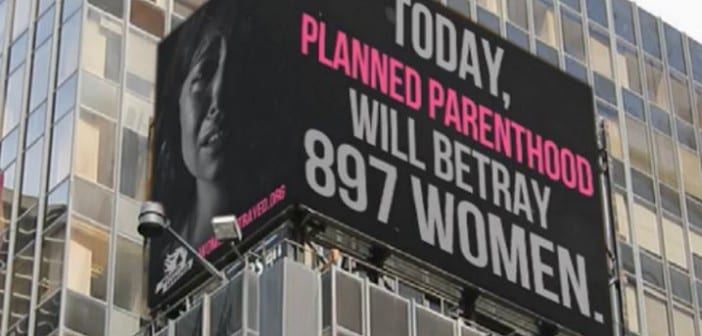Earlier this year, Students for Life of America reached countless hearts with a huge video display in the middle of Times Square in New York City. The video exposed Planned Parenthood’s business of committing nearly nine hundred abortions every day and betraying as many women in the process. Students for Life’s message is clear: Planned Parenthood is a business that markets and operates like a business first and foremost. This means that the well-being of women is not Planned Parenthood’s first priority. Planned Parenthood betrays women.
The ten-second Times Square video was successful. Students for Life is looking to expand that success by bringing their message to a wider audience through television commercials. And after decades of engaging students in conversation about Life issues, the group knows how to reach – and transform – hearts and minds.
The commercials provide two crucial pieces of information to audiences. First, they expose Planned Parenthood’s abortion-obsessed operating model. Second, they raise awareness of the federally-funded health clinics that can provide alternative, comprehensive women’s health care.
But at least one outlet, Hulu, has already banned the Pro-Life television commercials submitted by the group. Students for Life is ready and willing to fund the airtime that these short spots would take on Hulu, but media discrimination against the Pro-Life message was swift. So the group moved into negotiations with another TV outlet, and is currently raising funds to purchase airtime with them.
Pro-Life media endeavors frequently face this kind of discrimination. When the producers of the Gosnell Movie initiated their first crowdfunding campaign on Kickstarter, for example, the site told them that their campaign violated the website’s terms. Kickstarter later apologized, but by then the Gosnell Movie had moved to Indiegogo, where the project ultimately raised over $2 million and is now in production. We hope Students for Life’s Pro-Life television commercials encounter similar success.


